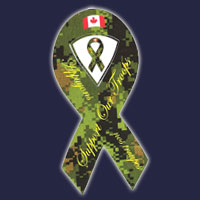 Petty Officer Second Class Douglas Craig Blake, 37, was killed when an improvised explosive device detonated. He was on foot around 4:30 p.m. Monday May, 3, 2010 near the Sperwan Ghar base in Panjwaii district.
Petty Officer Second Class Douglas Craig Blake, 37, was killed when an improvised explosive device detonated. He was on foot around 4:30 p.m. Monday May, 3, 2010 near the Sperwan Ghar base in Panjwaii district.
Photograph by: Handout, Canadian ForcesKANDAHAR AIRFIELD, Afghanistan — A member of the Canadian Forces has died in a Taliban bomb blast next to Canada's front-line base, bringing to 143 the number of Canadian troops killed in the Afghan war.
Petty Officer Second Class Craig Blake was on foot around 4:30 p.m. Monday near the Sperwan Ghar base in Panjwaii district when an improvised explosive device detonated.
Blake, 37, of Simcoe, Ont., was an explosives-disposal operator, tasked with defusing IEDs. "At the time of his death, he and his team were returning to camp after a successful IED disposal near the village of Paye-e-Maluk," Canadian Forces Brig.-Gen. Daniel Menard said Tuesday.
A competing triathlete and peewee hockey coach, Blake was a married father of two. "Craig was a family man who was often heard telling glowing, heartfelt stories about his wife and two sons," Menard said.
Blake arrived in Afghanistan last month for his first tour of duty in the country.
Though Blake was a navy "clearance diver" serving with the Fleet Diving Unit Atlantic in Halifax, "he effortlessly adapted to the rigours of land operations," Menard said, adding that Blake was "incredibly fit, with a backbone of steel."
Blake's fellow troops dubbed him "The Poker Pirate" for his skill in card games, Menard said.
Paye-e-Maluk's compounds begin within 200 metres to the west of the Sperwan Ghar base, 25 kilometres southwest of Kandahar City. Canadian soldiers patrol through the village regularly. Just over a week ago, a group of insurgents was spotted at night laying wire to plant an IED under the road that passes Paye-e-Maluk and leads to Sperwan Ghar, but were interrupted by a salvo of Canadian cannon fire from an armoured vehicle atop the Sperwan Ghar hill. No killed or wounded Taliban were found at the scene. On Thursday, Canadian soldiers and Afghan troops searching compounds in Paye-e-Maluk found a bloody makeshift stretcher.
Insurgents in the area place IEDs that can be triggered by remote control or by the pressure of a footstep or vehicle. Taliban are also increasingly using "directional" IEDs that blast shrapnel out of a concealed spent cannon shell or length of pipe. The Canadian military has not revealed which type of IED killed Blake.
The Canadian Forces did not report whether any soldiers were injured in the explosion that took Blake's life, as per a recently imposed policy of refusing to make public any information about wounded soldiers except in an annual report.
Eighty-seven of the Canadian soldiers who have died in Afghanistan were killed by IEDs.
Most recently, Pte. Tyler William Todd, 26, died April 11 from an IED blast while on foot patrol near the village of Belanday in Dand district near the border with Panjwaii.
Tuesday morning, Gov. Gen. Michaelle Jean said the death was tragic news for Canadians.
"Petty Officer Second Class Blake, like all of his comrades deployed to Afghanistan, demonstrated extraordinary commitment in providing assistance to the Afghan people and helping in the reconstruction of this devastated country. He offered the best of himself and we salute his tremendous courage, his generous spirit and his commitment to excellence in the line of duty.
"Our thoughts are with his mourning parents, his fellow sailors and his friends. We can only imagine their great suffering and grief. On behalf of all Canadians, we offer them our sincerest condolences," the Governor General said in a news release.
Prime Minister Stephen Harper said: "Petty Officer Blake was a brave Canadian who made the ultimate sacrifice while proudly serving his country. Thanks to Canadian Forces members like Petty Officer Blake, we are making progress in Afghanistan in creating a better future for the Afghan people. On behalf of the Canadian people, I would like to extend my deepest sympathies to his family and friends during this difficult time.
"This is a loss for Canada and the Canadian Forces — but it was not in vain. With the help of the international community, Afghans are rebuilding their communities and improving their lives," Harper said in a news release.
"Let us never forget Petty Officer Blake, who died trying to make life better for others."






